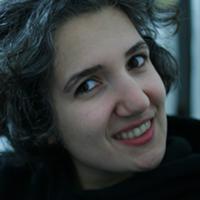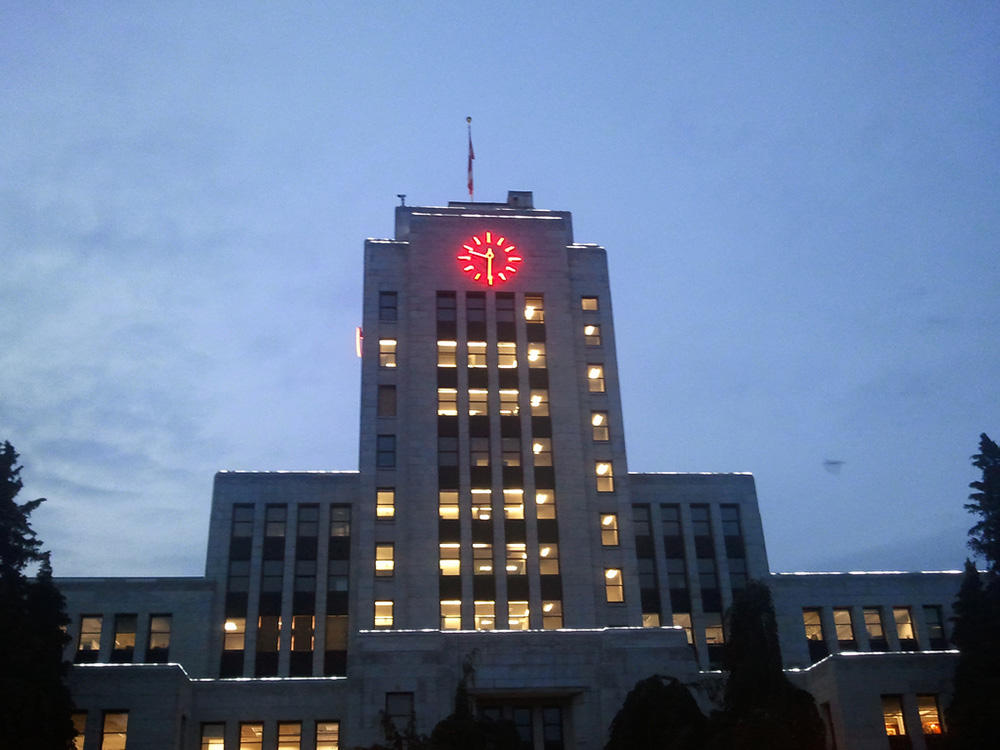On Wednesday, Vancouver city council discussed a proposal to amend the city’s noise bylaw and ban the unauthorized use of sound amplification devices in public. Those who defy the ban would be fined $250 and potentially have their devices taken away.
The proposal was presented as a response to the disturbing events of last summer when a homophobic preacher with a mic and an amp — broadcasting his hateful message into the homes of West End residents — was confronted by one resident. The ensuing fight left the resident in the hospital with a broken leg.
However, political context is absent from the amendment proposal. The issue of hate speech is not discussed — rightfully so perhaps, as it’s already addressed in the Criminal Code and is outside of municipal jurisdiction — and the focus is entirely on the puritanical concern of noise in public spaces.
The proposal appears to be initiated by city staff independently, supported and co-authored by the Vancouver Police Department, with no direction from council, nor any consultations with the West End community, LGBTQ+ community and advocates, or even the city’s own 2SLGBTQ+ Advisory Committee.
It’s shocking that in the midst of a deadly pandemic and a homelessness crisis that has normalized permanent tent cities in Vancouver, city hall is busying itself with limiting the use of public spaces. Is noise really the issue deserving of public resources and attention right now?
The council’s discussion on Wednesday took more than five hours and ended with no vote on the proposal itself. Councillors voted to refer it back to staff for a report on a host of related considerations, including implementing a permit system for amplified protests (which currently do not require permits). NPA Coun. Sarah Kirby-Yung, who opposed the referral, was also the most vocal in her support for the proposal.
To be fair, it’s difficult to say how council could respond to the events of last summer or prevent similar ones. But one thing’s for sure: if there are improvements to be made to city bylaws in this matter, they won’t be achieved without consultation with the affected communities, nor without finding the right tools to address the larger and more controversial issue of distinguishing between free speech and hate speech.
It also very likely won’t be achieved through an expansion of the enforcement powers of police and bylaw officers.
The proposed mechanism wouldn’t block similar hateful speeches from gaining a platform, as the city can’t screen permit applications for political intent. The same preacher under the new bylaw could apply for a permit, and the city may not have grounds to deny it.
But if the proposal had passed, buskers in permit-free areas of the city, peaceful protesters, striking workers and anyone wishing to use an amplifier in public to exercise their freedom of expression would have to face the financial and bureaucratic barrier of acquiring a permit.
Several members of the LGBTQ+ community spoke in opposition to the proposal. One speaker said, “No one in [the LGBTQ+] communities has asked for this” and objected that bylaw enforcement is too blunt an instrument for dealing with complex social and legal issues.
Regardless, some councillors seemed intent on using last summer’s event to manufacture consent for an expansion of bylaw enforcement and for potentially requiring permits for protests. “Easier enforcement” was used as a justification for replacing the decibel limits currently in the bylaw, with an outright prohibition on amplification — never mind trampling people’s rights to free speech and the need to balance different interests.
In fact, the noise bylaw has been used before to clamp down on protests, including when downtown hotel owners sought an injunction against their striking workers on the account of the noise. In October 2019, well-organized Unite Here Local 40 members, the union of hospitality workers, successfully used persistent picketing, chanting and drumming to draw attention to unjust treatment by their employers, including sexual harassment at work.
The strike worked, and hotel workers were able to negotiate a better contract and working conditions, but not before the employers resorted to the noise bylaw to try and shut them down. For hotel workers, this proposal is equivalent to ordering victims to silence in the face of injustice and siding with the oppressor. Could future pickets and strikes be stopped more easily with the proposed bylaw amendment? Possibly.
Let’s also point out that there is so much noise in this city — in every city in fact. Most of it is unnecessary and inconveniences a lot of people. What of the noise and disturbance of the construction business, for instance, that seizes the use of our public spaces at all hours of the day for private economic gains? The never-ending churn of tearing down, digging up ground and building back up again, which defines so much of life in Vancouver and disturbs the living hell out of every residential area, never seems to trigger bylaw reviews. Why are the city and the police particularly keen on confronting political speech as “noise” and singling it out for criminalization?
Public communication is a right, not a crime. Protesting is a right, not a crime. This proposal is a frustrating attempt at infringing upon individual and group rights to attract public attention and communicate a political message. It is an undemocratic, tough-on-crime approach to public speech, and in the words of one speaker from Wednesday, “stifles freedom of expression under the guise of protecting from hate.”
It’s a relief that this proposal did not pass this time around, but rest assured that if Vancouver police and some councillors have their way, it will come back with other ways to expand the power and reach of the police, while giving them a pass for failing to keep residents safe where it matters — be it a homophobic preacher attacking a West End resident or white supremacists disrupting a Black Lives Matter march.
This is not the result of a shortcoming in city bylaws or the Criminal Code, but of a police force whose raison d'être is to protect the powerful and preserve the status quo. ![]()
Read more: Rights + Justice, Municipal Politics
















Tyee Commenting Guidelines
Comments that violate guidelines risk being deleted, and violations may result in a temporary or permanent user ban. Maintain the spirit of good conversation to stay in the discussion.
*Please note The Tyee is not a forum for spreading misinformation about COVID-19, denying its existence or minimizing its risk to public health.
Do:
Do not: